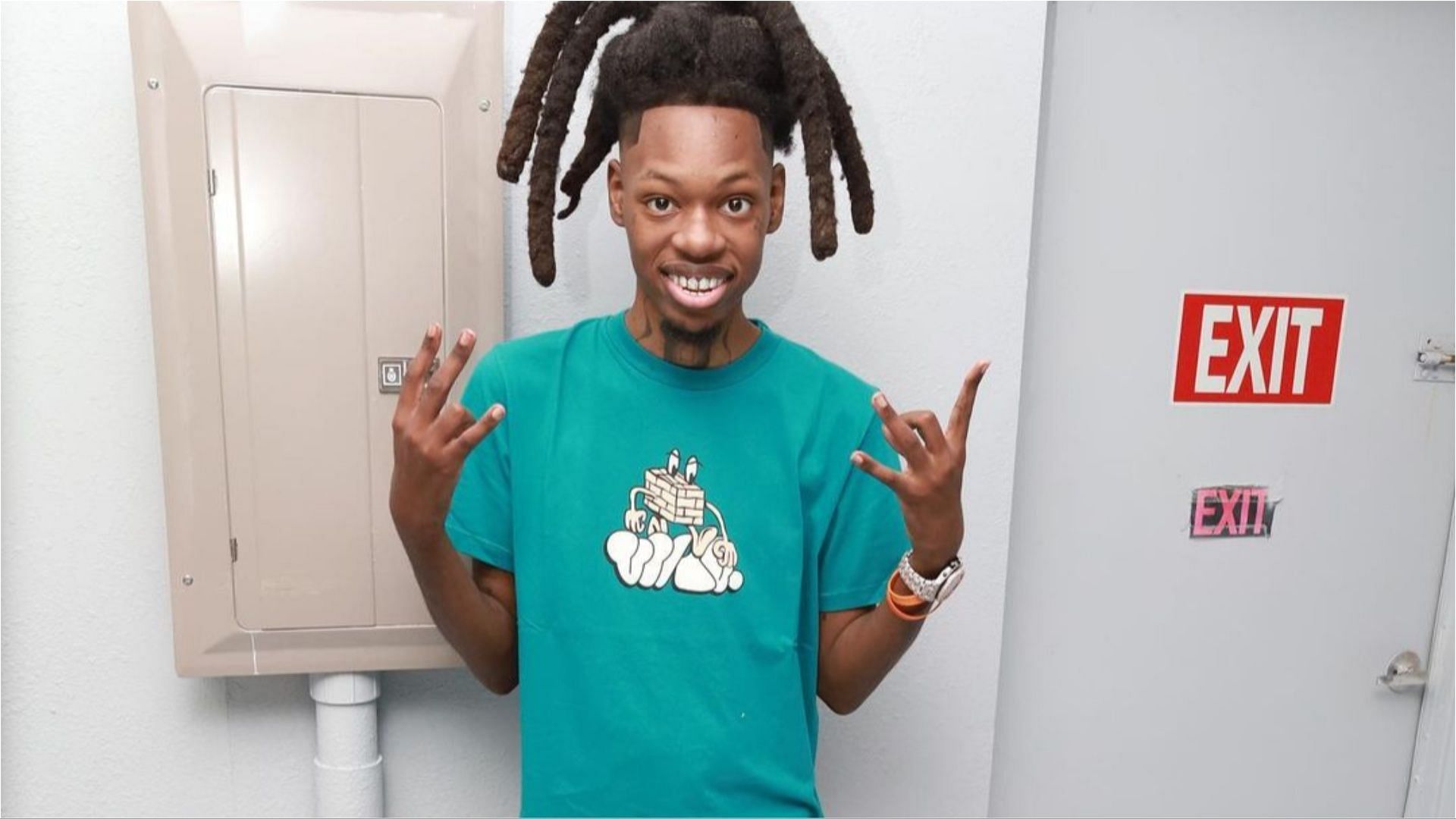The Untold Story Of Julio Foolio: A Tragic End And The Broader Implications
The autopsy report of Julio Foolio, released by the coroner’s office, paints a clinical picture of the final moments of a promising young life. Yet, it goes beyond the medical details to spotlight the complex interplay of factors contributing to his untimely death. The report, meticulously documenting the physical evidence and toxicology results, serves as a stark reminder of the challenges faced by young artists navigating the perilous waters of urban life. While the findings provide concrete answers about the cause of death, they also raise broader questions about the societal and cultural contexts that led to this tragic outcome.
Julio Foolio’s story, like that of many of his contemporaries, reflects the struggles and dangers inherent in the modern urban landscape. Born Charles Jones in Jacksonville, Florida, on June 21, 1998, Foolio emerged as a vibrant voice in the hip-hop and trap music scenes. His career, spanning from 2015 until his death in 2024, was marked by a series of notable tracks, including "Coming Up," "Win," and "Crooks." Despite his relatively short career, Foolio managed to leave an indelible mark on the music industry and his community. His passing has sparked a wider discourse about the intersection of art, environment, and violence, urging society to reflect on the systemic issues affecting young artists.
| Attribute | Details |
|---|---|
| Full Name | Julio Foolio (born Charles Jones) |
| Date of Birth | June 21, 1998 |
| Place of Birth | Jacksonville, Florida |
| Date of Death | June 23, 2024 |
| Occupation | Rapper, Songwriter |
| Genres | Hip Hop, Trap |
| Years Active | 2015 - 2024 |
| Associated Acts | Various Jacksonville Rappers |
| Notable Songs | "Coming Up", "Win", "I Don't Care", "Crooks", "When I See You", "Beatbox" |
| Label | Foolios Own Label |
| Reference | Wikipedia |
The autopsy report, issued by the coroner’s office, is a detailed document that delves into the medical specifics surrounding Foolio’s death. It meticulously documents the time and date of his passing, identifies the exact cause of death, and provides a comprehensive examination of any injuries sustained. Toxicology tests reveal the presence or absence of substances in his system, offering critical insights into the events leading up to his death. These findings, while clinical in nature, carry profound implications for understanding the broader context of his life and the circumstances that contributed to his tragic demise.
Beyond the medical details, the autopsy report serves as a catalyst for deeper discussions about the societal issues affecting young artists. Foolio’s music, which often explored themes of struggle and resilience, now resonates even more poignantly with his audience. His ability to articulate the realities of urban life through his art connected him deeply with his listeners, many of whom found solace and inspiration in his lyrics. The outpouring of grief on social media and the numerous tributes organized in his honor underscore the profound impact he had on both his community and the music industry.
The death of Julio Foolio has ignited necessary conversations about the prevalence of violence and its impact on the lives of young artists. It highlights the urgent need for systemic changes within the music industry and the broader community. Industry professionals and fellow artists have called for increased mental health resources, safer environments for performances, and more robust community outreach programs. These initiatives aim to address the root causes of violence and provide young musicians with the support they need to thrive creatively without compromising their safety.
Foolio’s legacy extends beyond his music, inspiring a generation of artists to confront the challenges they face with courage and resilience. His untimely death serves as a poignant reminder of the importance of creating a safer, more supportive environment for young creatives. The industry’s response to this tragedy reflects a growing awareness of its responsibilities in promoting positive change. Artists and industry leaders are increasingly collaborating with community organizations to implement programs aimed at reducing violence and fostering a culture of safety and support.
- Little Falls Mn Funeral Homes Obituaries Find Support Services
- Jordyn Blums Net Worth Dave Grohls Fortune A Look Inside
The music community has rallied around Foolio’s memory, channeling their grief into meaningful action. Fundraising efforts have been launched to assist his family, and anti-violence campaigns have gained momentum, drawing attention to the urgent need for reform. The increased streaming of Foolio’s music following his death is a testament to the enduring power of his art and its ability to inspire and connect people across diverse backgrounds.
In the wake of Foolio’s passing, the music industry is grappling with its role in perpetuating or combating the cycle of violence. Critics argue that certain lyrical themes and the environments in which artists operate can contribute to a culture of aggression. However, many within the industry recognize the potential for music to be a force for positive change, using it as a platform to address pressing social issues. This duality underscores the complexity of the industry’s influence and the importance of fostering a more responsible approach to content creation and artist development.
The tragic loss of Julio Foolio has prompted a reevaluation of the industry’s priorities and practices. It has brought into sharp focus the need for greater accountability and a commitment to creating a safer, more equitable environment for all artists. As the industry continues to evolve, the lessons learned from Foolio’s story will undoubtedly shape its future direction, guiding efforts to ensure that young talents are nurtured and protected.
The legacy of Julio Foolio will endure through the music he created and the lives he touched. His story serves as both a cautionary tale and a source of inspiration, reminding us of the power of art to transcend adversity and effect meaningful change. As the industry and society at large work toward addressing the systemic issues that contributed to his untimely death, Foolio’s memory will continue to inspire hope and action for a better future.
The broader implications of Foolio’s death extend beyond the immediate community, resonating with audiences worldwide. It highlights the interconnectedness of art, culture, and society, urging us to examine the narratives we create and consume. In a world where the lines between art and reality often blur, the responsibility to promote positive change rests not only with artists but with all those who engage with their work. As we honor Foolio’s memory, we must commit to building a world where young artists can pursue their dreams without fear, where their creativity can flourish in an environment of safety and support.
The music industry, like any cultural institution, reflects the values and challenges of the society it serves. In the case of Julio Foolio, his story sheds light on the urgent need for reform and accountability. By addressing the root causes of violence and fostering a culture of support and inclusivity, the industry can honor his legacy and pave the way for future generations of artists. As we look to the future, the lessons learned from Foolio’s tragic end will guide us toward a more just and equitable world, where the power of art can truly transform lives and communities.
- Blue Cross Blue Shield Nm Your Guide To Plans Coverage
- Gypsy Rose Blanchards Time In Prison Timeline Release Details

Where is Julio Foolio from? Real name, age and all about the rapper in

🚨 SHOCKING Jacksonville Rapper Julio Foolio Gunned Down in Tampa

Autopsy And Instagram Reveal Julio Foolio's Face, Shooting Details